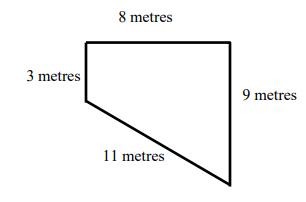Many students are suffering though mathematical learning gaps that prevent movement towards a degree or better employment opportunities. These learning gaps can create caverns that may seem impossible to get past and can block them from the benefits of a well paying career. That’s when the expertise of a specialized math educator is critical, and the investment becomes a bargain compared to a missed opportunity for growth.
The cost of math tutoring can vary significantly due to a combination of factors that influence how a company operates; such as what resources they provide and the quality of instruction. However, the most common reason a student will pay more for one tutor than another is the expertise and specialization of the educator.
Fresh grads will charge less than an experience educator. The second most common reason is Student Procrastination – procrastination is always more costly than proactivity.
For the student who only needs a little direction and practice, paying for the expertise of specialized math educator may not be economical, as there are thousands of free videos available on every mathematical concept. Furthermore, most institutions that offer math classes also offer FREE additional help for their students. I suggest that struggling students consider these options at the first sign of trouble before it becomes necessary to hire an expensive tutor. But that’s kind of like suggesting “eat vegetables and exercise at the first sign of trouble before it becomes necessary to hire an expensive doctor.”
Here are some of the logistical reasons why math tutors charge so much.
- Type of Company: Tutoring companies have varying cost structures. Private companies and highly qualified math educators have higher fees compared to community services.
- Specialized Knowledge: Math is a complex and specialized subject, especially when dealing with advanced topics like calculus, statistics, or advanced algebra. Educators who have in-depth expertise in these areas should charge more due to the complexity of the subject matter.
- Advanced Education: Educators with advanced degrees in mathematics or related fields often command higher rates due to their level of education and expertise.
- Complex Problem-Solving: Math Educators who help students with intricate problem-solving techniques, proofs, and abstract concepts will charge more due to the intellectual demands of teaching these skills.
- Test Preparation: Educators who specialize in preparing students for standardized math tests such as the SAT, ACT, GRE, or GMAT will charge higher rates because of the specialized strategies and resources required for effective test prep.
- Customized Learning Plans: Math educators who create tailored learning plans, assessments, and exercises based on each student’s strengths and weaknesses will charge more due to the additional time and effort required for customization.
- Small Group or One-on-One: Educators who offer one-on-one sessions or small group classes with fewer students will charge more for the personalized attention and focus on individual needs.
- Time Intensive: Math sessions can be more time-intensive, especially when tackling complex problems. Educators must charge higher rates to compensate for the preparation and time spent on each session.
- High Demand for STEM Subjects: Subjects related to science, technology, engineering, and mathematics (STEM) are often in high demand. Educators who offer expertise in these subjects will adjust their rates accordingly.
- Limited Availability: Educators who have limited availability due to a busy schedule must charge higher rates to reflect the premium placed on their available time.
- Online Learning Tools: Math educators who provide access to specialized math software, tools, or online resources as part of their tutoring service must charge more to cover the cost of these resources.
- Reputation and Experience: Educators with a strong track record of successful outcomes and positive reviews always charge higher rates due to their reputation and demand.
- Preparation for Advanced Courses: Educators who prepare students for advanced math courses in high school or college charge more due to the challenging nature of the coursework.
It’s important to note that while higher costs may indicate better quality in some cases, they are not always synonymous. Factors such as program outcomes, student support, instructor qualifications, and the alignment of the education with your goals should be considered when evaluating the value of a specialized math educator.


